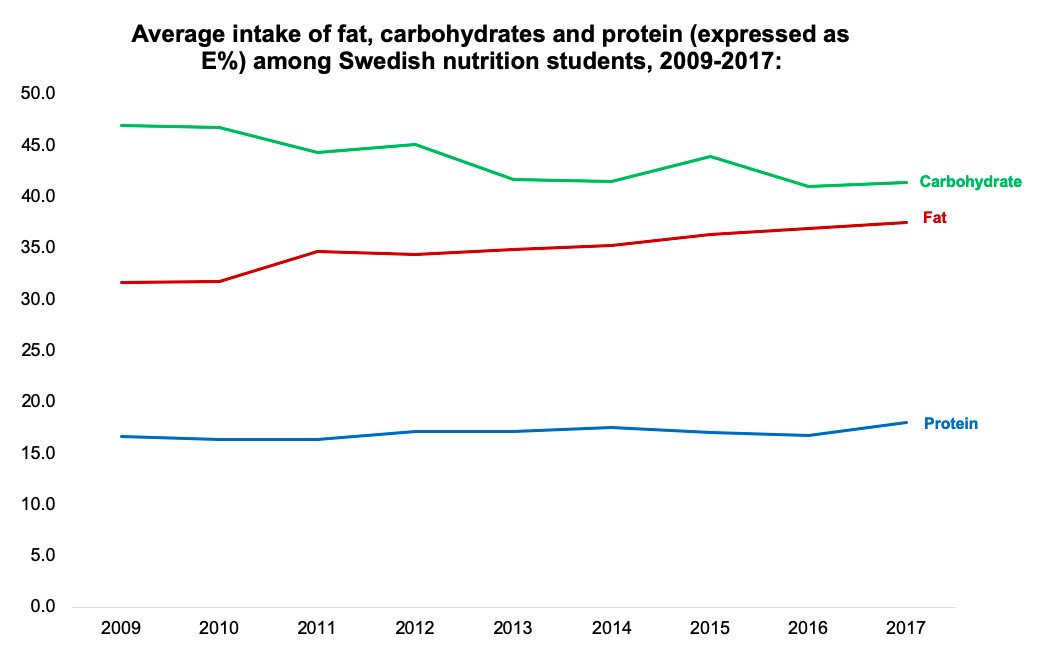Has the past decade’s low-carb trend influenced the dietary choices of nutrition students? According to a new study from the Linnaeus University Sweden, the answer is yes.
The study, published in the peer-reviewed open access journal PLOS One in January, looked at the average intake of macronutrients and micronutrients of 729 women who were enrolled at a nutrition course at Linnaeus University between 2009-2017.
Students were asked to record their food and drink during the course. Each student’s intake of calories, macronutrients and micronutrients was then calculated, and the averages for each year were reported.
The results show that during the nine-year period, the average carbohydrate intake dropped from 47% of energy intake (E%) to 41.4 E%. This is lower than the current Nordic Nutrition Recommendations, which encourage consumers to aim for around 45-60 E% carbohydrates every day.
The most significant drop in carbohydrate intake occurred in 2012-2013, when average intake went from 45.1 E% (in 2012) to 41.4 E% (in 2013). This coincides with the period in which the LCHF diet was first getting established in Sweden.
At the same time as the students were trimming their carbohydrate intake they were also upping their fat and protein consumption. Average fat intake went from 31.7% to 37.5%, while protein intake increased from 15.9% to 18%. Both of these values are in line with the Nordic Nutrition Recommendations of 25-40 E% from fat and 10-20 E% from protein.

Based on this data, it appears that the students favour a lower-carb, higher-fat diet – something found by other studies of Swedes’ eating habits.
The Linnaeus University study has limitations – its relatively small size and its gender bias being the main ones – but it shows that not even those with a professional interest in nutrition are immune to popular diet advice, nor afraid of ignoring official dietary guidelines.

